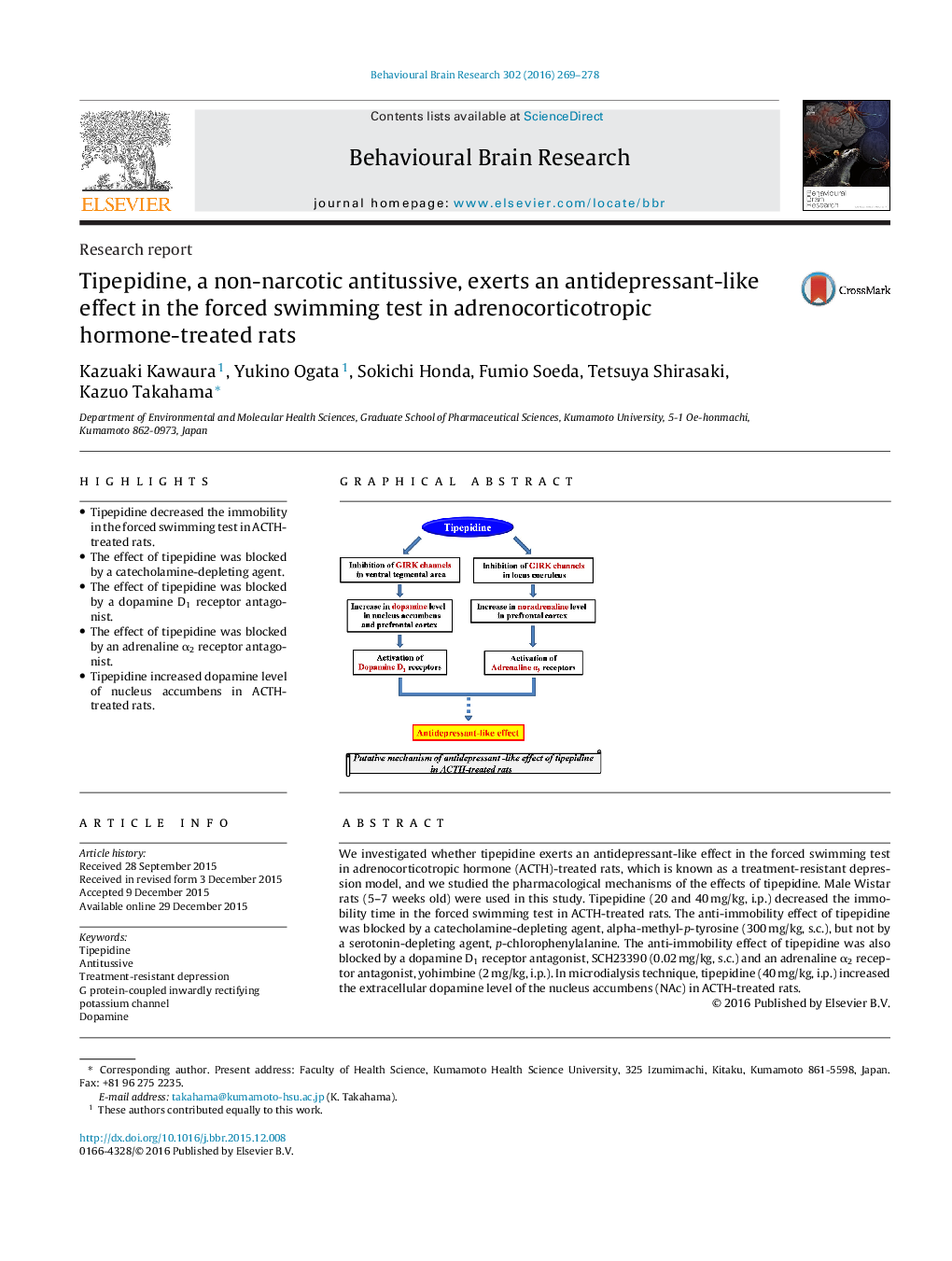| Article ID | Journal | Published Year | Pages | File Type |
|---|---|---|---|---|
| 6256203 | Behavioural Brain Research | 2016 | 10 Pages |
â¢Tipepidine decreased the immobility in the forced swimming test in ACTH-treated rats.â¢The effect of tipepidine was blocked by a catecholamine-depleting agent.â¢The effect of tipepidine was blocked by a dopamine D1 receptor antagonist.â¢The effect of tipepidine was blocked by an adrenaline α2 receptor antagonist.â¢Tipepidine increased dopamine level of nucleus accumbens in ACTH-treated rats.
We investigated whether tipepidine exerts an antidepressant-like effect in the forced swimming test in adrenocorticotropic hormone (ACTH)-treated rats, which is known as a treatment-resistant depression model, and we studied the pharmacological mechanisms of the effects of tipepidine. Male Wistar rats (5-7 weeks old) were used in this study. Tipepidine (20 and 40 mg/kg, i.p.) decreased the immobility time in the forced swimming test in ACTH-treated rats. The anti-immobility effect of tipepidine was blocked by a catecholamine-depleting agent, alpha-methyl-p-tyrosine (300 mg/kg, s.c.), but not by a serotonin-depleting agent, p-chlorophenylalanine. The anti-immobility effect of tipepidine was also blocked by a dopamine D1 receptor antagonist, SCH23390 (0.02 mg/kg, s.c.) and an adrenaline α2 receptor antagonist, yohimbine (2 mg/kg, i.p.). In microdialysis technique, tipepidine (40 mg/kg, i.p.) increased the extracellular dopamine level of the nucleus accumbens (NAc) in ACTH-treated rats. These results suggest that tipepidine exerts an antidepressant-like effect in the forced swimming test in ACTH-treated rats, and that the effect of tipepidine is mediated by the stimulation of dopamine D1 receptors and adrenaline α2 receptors. The results also suggest that an increase in the extracellular dopamine level in the NAc may be involved in the antidepressant-like effect of tipepidine in ACTH-treated rats.
Graphical abstractDownload high-res image (143KB)Download full-size image
